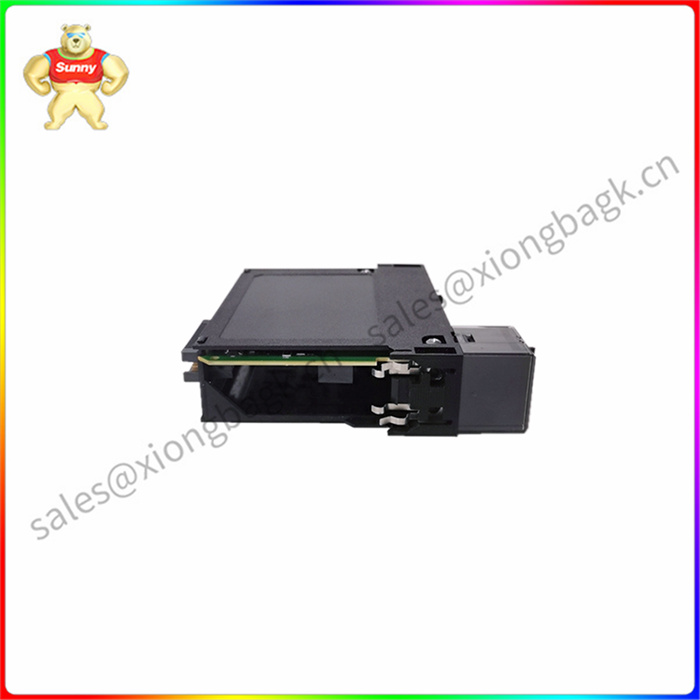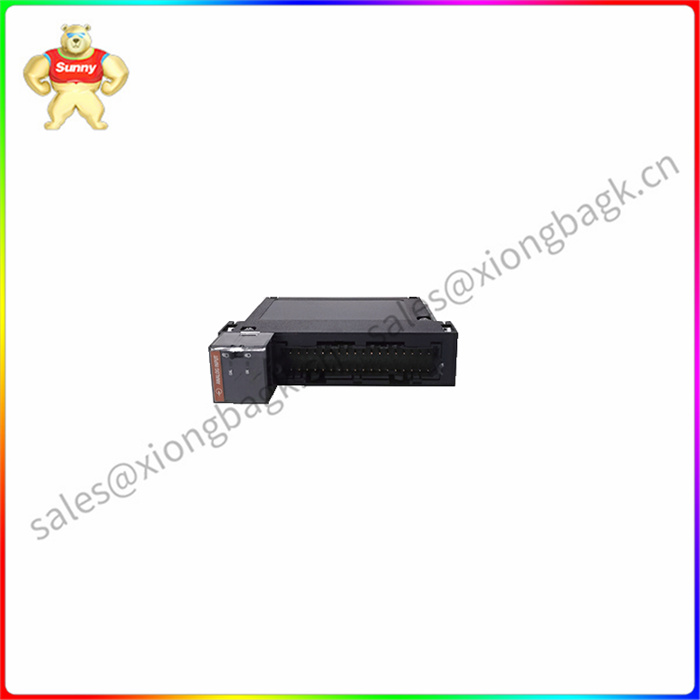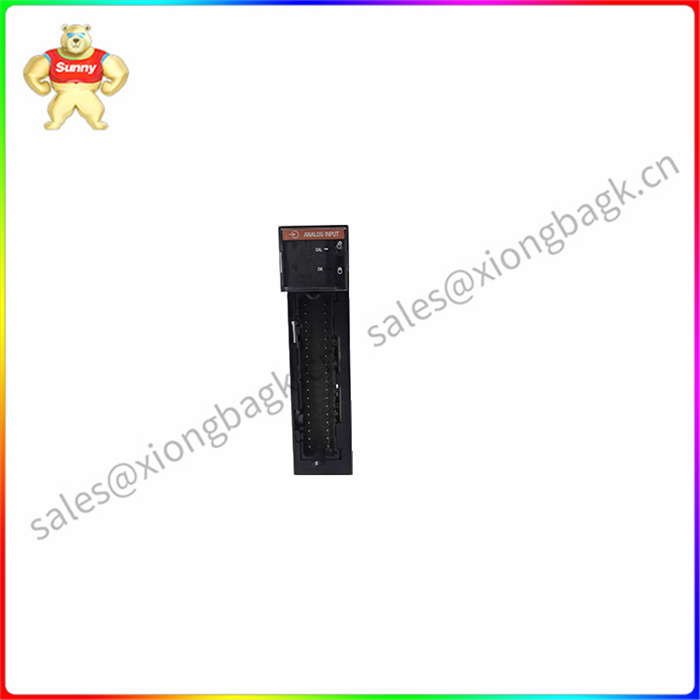1756-IF16 是一款 ControlLogix 模块 高速模拟输入通道
Allen-Bradley 1756-IF16 是一款 ControlLogix 模拟量输入模块。该模块接受电流和电压信号,例如 ±10V、0-10V、0-5V 和 0-20 mA。该模块支持三 (3) 种类型的信号接线配置,例如单端、差分和高速差分接线。在支持的接线配置中,单端接线对噪声zui敏感,必须与具有公共接地的信号一起使用。为了提高噪声敏感性,在需要相对于输入信号快速更新数据的系统中使用差分布线方法,而高速差分布线则使用差分布线。
通过单端接线,该模块成为十六 (16) 通道模拟输入模块。同样,当与差分接线一起使用时,该模块被简化为八 (8) 通道模拟输入模块。此外,当模块作为高速差分接线接线连接时,该模块将成为四 (4) 通道模拟输入模块。
1756-IF16 的单个分辨率为 320 μV/计数(15 位 + 符号双极性)@ ±10.25V 输入范围;160 μV/计数(16 位)@ 0-10.25V 输入范围;80 μV/计数(16 位)@ 0-5.125V 输入范围和 0.32 μA/计数(16 位)@ 0-20.5 mA。该模块的扫描时间各不相同,例如单端为 16-488 毫秒;8-244 ms(差分接线)和 5-122 ms(高速差分接线)。它具有使用 Sigma-Delta 方法的内置模数转换器电路。转换后的数据按照整数模式(左对齐,2 秒补码)IEEE 32 位浮点数据格式存储。该模块的校准精度优于电压输入量程的 0.05% 和电流输入量程的 0.15%。
1756-IF16 可以使用三种不同的方法进行接线,具体取决于用户和应用的要求,例如单端接线、差分接线和高速模式差分接线。当所有输入设备都连接到公共接地时,zui好采用单端接线方法。这是为了将信号输入的一侧与信号接地进行比较,以获得差值,然后模块使用它为控制器生成数字数据。当应用没有公共接地或可能具有单独的信号对时,建议使用差分布线方法。这种接线方法也适用于需要提高抗噪性的环境。差分模式下的通道彼此之间没有完全隔离。如果多个差分输入信号具有不同的电压公共基准,则一个通道可能会影响另一个通道的读数。发生这种情况时,用户应将输入连接到不同的模块上,或将非隔离模块替换为隔离输入模块。在此模式下允许 8 个连接。zui后,高速模式差分布线方法可实现尽可能快的数据更新。但是,用户需要满足某些条件才能使用高速模式。首先,它使用差分接线方法。其次,在这种模式下,模块上的每四个通道中只有一个可以使用。1756-IF16 模块的功耗为 2.3 瓦,背板总功率为 2.33 瓦。输入范围为 ± 10 V、0 至 10 V、0 至 5 V 或 0 至 20 mA。
该模块在 5.1 V 时的电流消耗为 150 mA,或在 65 V 时为 24 mA。背板的额定电压和电流为 5.1 伏直流电,zui大值为 150 mA,zui大值为 24 伏直流电 65 毫安。输入电流范围为 4 至 20 mA,输入电压范围为 -10 至 10 V,限制为 100VA。电压功耗约为 2.3 瓦,电流功耗为 3.9 瓦。电压的散热为 7.84 BTU/小时,电流的热耗散为 13.3 BTU/小时。它还具有 30 伏直流电(电压)和 8 伏直流电(电流)的zui大过压保护。



1756-IF16 是一款 ControlLogix 模块 高速模拟输入通道
The Allen-Bradley 1756-IF16 is a ControlLogix analog input module. The module accepts current and voltage signals such as ±10V, 0-10V, 0-5V and 0-20 mA. The module supports three (3) types of signal wiring configurations, such as single-ended, differential, and high-speed differential wiring. Of the supported wiring configurations, single-ended wiring is the most sensitive to noise and must be used with a signal with common ground. In order to improve noise sensitivity, differential wiring methods are used in systems where data needs to be updated quickly relative to the input signal, while high-speed differential wiring uses differential wiring.
With single-ended wiring, the module becomes a sixteen (16) channel analog input module. Again, when used with differential wiring, the module is reduced to an eight (8) channel analog input module. In addition, when the module is connected as a high-speed differential wiring, the module will become a four (4) channel analog input module.
The 1756-IF16 has a single resolution of 320 μV/ count (15-bit + sign bipolar) @ ±10.25V input range; 160 μV/ Count (16 bits) @ 0-10.25V input range; 80 μV/ Count (16-bit) @ 0-5.125V Input range and 0.32 μA/ count (16-bit) @ 0-20.5 mA. The scanning time of the module varies, for example 16-488 milliseconds for a single end; 8-244 ms (differential connection) and 5-122 ms (high-speed differential connection). It has a built-in analog-to-digital converter circuit using the Sigma-Delta method. The converted data is stored in integer mode (left-justified, 2-second complement) IEEE 32-bit floating-point data format. The module's calibration accuracy is better than 0.05% of the voltage input range and 0.15% of the current input range.
The 1756-IF16 can be wired using three different methods, depending on user and application requirements, such as single-ended wiring, differential wiring, and high-speed mode differential wiring. When all input devices are connected to common ground, it is best to use a single-ended wiring method. This is to compare the side of the signal input with the signal grounding to get the difference, which the module then uses to generate digital data for the controller. Differential wiring methods are recommended when applications have no common ground or may have separate signal pairs. This wiring method is also suitable for environments where noise resistance needs to be improved. Channels in differential mode are not completely isolated from each other. If multiple differential input signals have different voltage common references, one channel may affect the reading of the other. When this happens, the user should connect the input to a different module or replace the non-isolated module with an isolated input module. Eight connections are allowed in this mode. Finally, the high-speed mode differential routing method can achieve the fastest possible data update. However, users need to meet certain conditions to use high-speed mode. First, it uses the differential wiring method. Second, in this mode, only one out of every four channels on the module can be used. The 1756-IF16 module consumes 2.3 watts and the backplane has a total power of 2.33 watts. The input range is ± 10 V, 0 to 10 V, 0 to 5 V, or 0 to 20 mA.
The current consumption of the module is 150 mA at 5.1 V, or 24 mA at 65 V. The backplane is rated for voltage and current of 5.1 volts DC with a maximum of 150 mA and a maximum of 24 volts DC of 65 mA. The input current range is 4 to 20 mA, the input voltage range is -10 to 10 V, and the limit is 100VA. Voltage consumption is about 2.3 watts and current consumption is 3.9 watts. The heat dissipation of the voltage is 7.84 BTU/ hour and the heat dissipation of the current is 13.3 BTU/ hour. It also has maximum overvoltage protection of 30 volts direct current (voltage) and 8 volts direct current (current).









 QQ在线客服
QQ在线客服